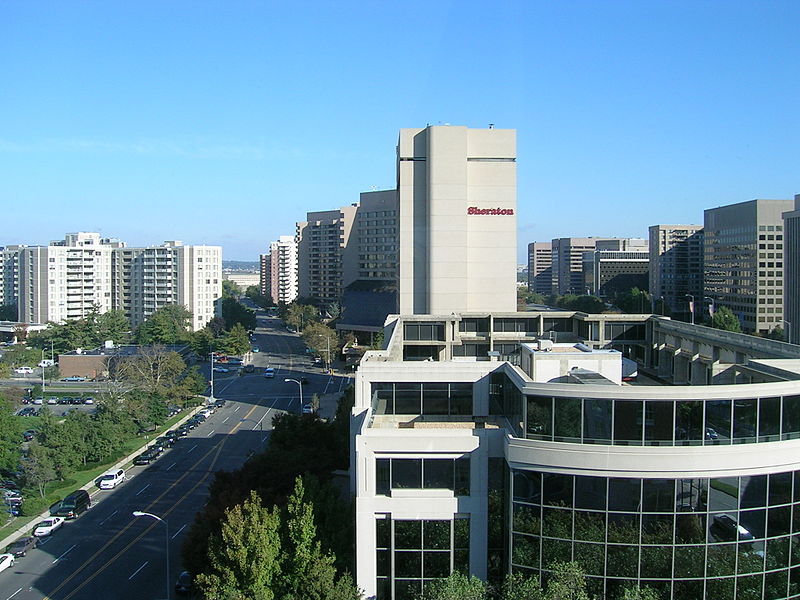After 11 months of hoping, praying, and more than a little begging, 18 finalist cities came away empty handed from the lottery for Amazon’s second headquarters, which promised the winner a Powerball of 50,000 high-paying jobs, $5 billion in direct investment, and an economic boon.
On Nov. 12, Amazon confirmed that it had chosen two locations—Long Island City in the New York borough of Queens, and the Crystal City neighborhood of Arlington, Va.—where it will split its hiring and investment plans for its second homes.
Amazon’s overhyped yet secretive selection process—starting with the announcement of its plans in September 2017, followed by a six-week pitch period that drew bids from 238 cities—produced a short list of metros whose elected officials and business leaders pleaded their cases and promised the moon: tax breaks, land grants, and infrastructure improvements in the billions of dollars. (Why this largesse should be bestowed on one company is a topic for another time.)
As it turned out, though, Amazon’s HQ2 picks may have been preordained. The two cities already had the greatest number of Amazon employees outside of Seattle, and they offer a robust talent pool. Arlington is also near Washington, D.C., where Amazon’s Chairman and CEO Jeff Bezos lords over the Washington Post.
See Also: Amazon selects HQ2 cities
If, in fact, the two winners were always the frontrunners, and this whole exercise was a charade (as some of the chagrined cities suspect), Amazon pulled off a masterful act of manipulation and mass hypnosis, convincing the other contenders they had a legit shot. Officials in places like Denver, Chicago, and Boston—which were among the “leaders” cited in media speculation—are probably still scratching their heads about why their cities were also-rans.
During its vetting process, the tech giant gained access to troves of financial and demographic data about the cities it was considering. I don’t think it’s too cynical to suggest that Amazon will eventually use this information for other business purposes.
What, exactly, will the two winning cities be getting for their efforts, aside from more mass transit congestion? Probably not equal to what Amazon’s 14-million-sf presence has meant to Seattle’s economy and growth.
The stage has been set for Round 2, where developers and AEC firms trip over each other trying to get a piece of whatever Amazon is planning to either build or renovate. (The New York Times reported that Amazon informed the winners that it wants 500,000 sf of office space available in 2019.)
But before any firms enter the fray, it’s worth remembering that Seattle-based NBBJ has designed a number of buildings for Amazon, including its Spheres glass domes in Seattle, for which Magnusson Klemencic Associates was the structural engineer.
Related Stories
| Aug 11, 2010
Portland Cement Association offers blast resistant design guide for reinforced concrete structures
Developed for designers and engineers, "Blast Resistant Design Guide for Reinforced Concrete Structures" provides a practical treatment of the design of cast-in-place reinforced concrete structures to resist the effects of blast loads. It explains the principles of blast-resistant design, and how to determine the kind and degree of resistance a structure needs as well as how to specify the required materials and details.
| Aug 11, 2010
NASA plans federal government's greenest building
NASA is set to break ground on what the agency expects will become the highest performing building in the federal government. Named Sustainability Base, the new building at Ames Research Center in Sunnyvale, Calif., will be a showplace for sustainable technologies, featuring "NASA Inside" through the incorporation of some of the agency’s most advanced recycling and intelligent controls technologies originally developed to support NASA’s human and robotic space exploration missions.
| Aug 11, 2010
Harvard Law School Wood-Framed Houses
Cambridge, Mass.
A century ago, majestic Victorian homes lined Massachusetts Avenue in Boston, but few of these grande dames still survive. Harvard Law School owned three such beauties, which they used for office and research space. Unfortunately, the houses occupied prime real estate on which the school planned to build a new academic center. Rather than raze the historic wood-frame homes, the law school made it a priority to repurpose them.
| Aug 11, 2010
Rice concrete can cut greenhouse emissions
Rajan Vempati of ChK Group, Inc. in Plano, Texas, and a team of researchers found a way to make nearly carbon-free rice husk ash for concrete, which can lead to a boom in green construction.
| Aug 11, 2010
iSqFt acquires technology and key assets of Plan Express Inc.
Today iSqFt, the nation’s leading online preconstruction network, announced it has purchased the technology and key assets of Plan Express, Inc., a partner document-sharing network.
| Aug 11, 2010
ZweigWhite Announces 2009 Best Firms to Work For
Management consulting and research firm ZweigWhite has identified the best civil engineering, structural engineering, multidiscipline A/E services, environmental services, and architecture firms to work for in its annual ranking of top industry firms. These outstanding employers were selected based on their commitment to provide a positive work environment and challenging and interesting work opportunities for their employees.







